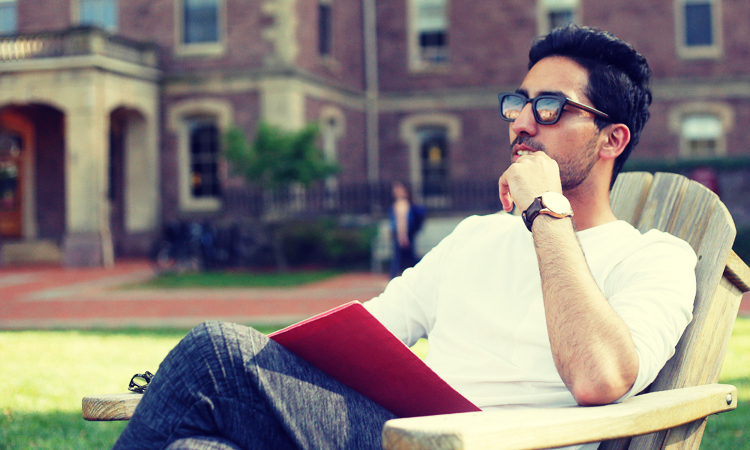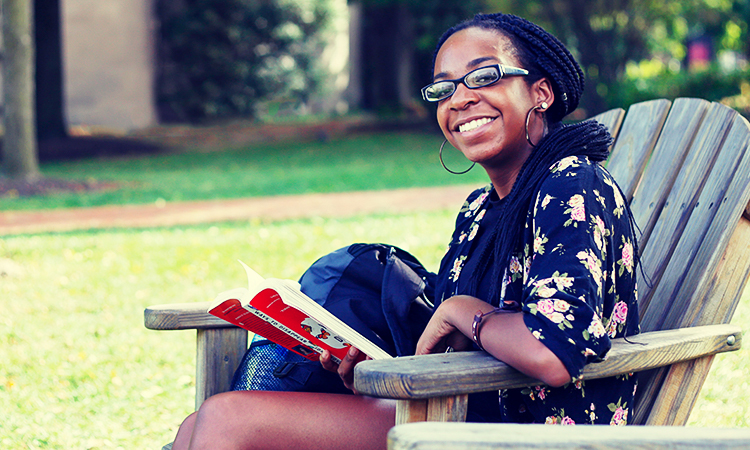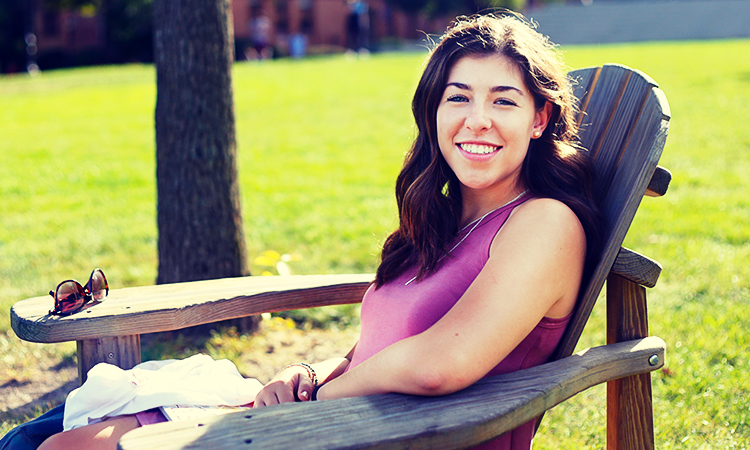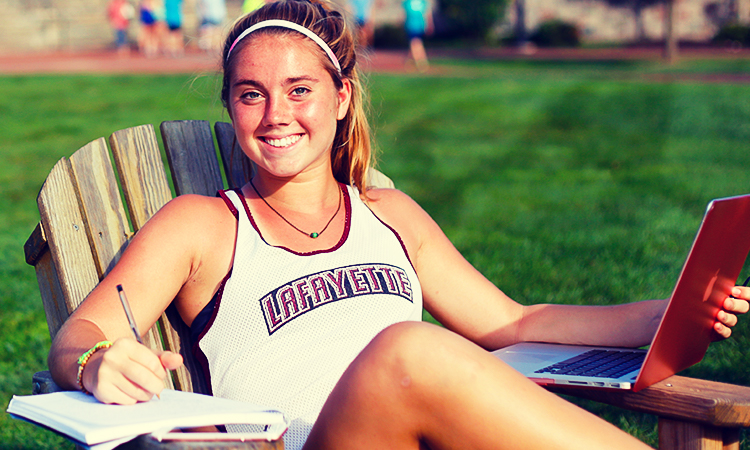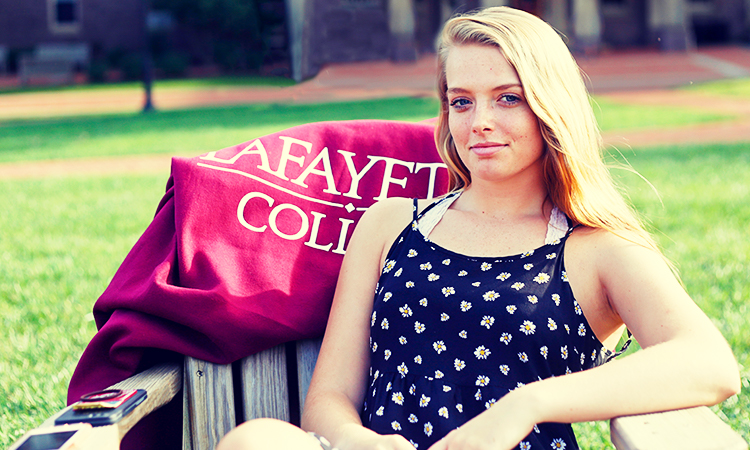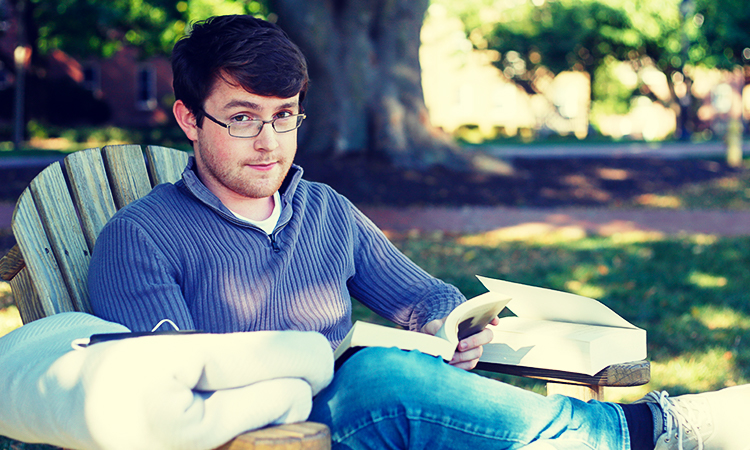I Bet You Didn’t Know…
By Ashli Truchon
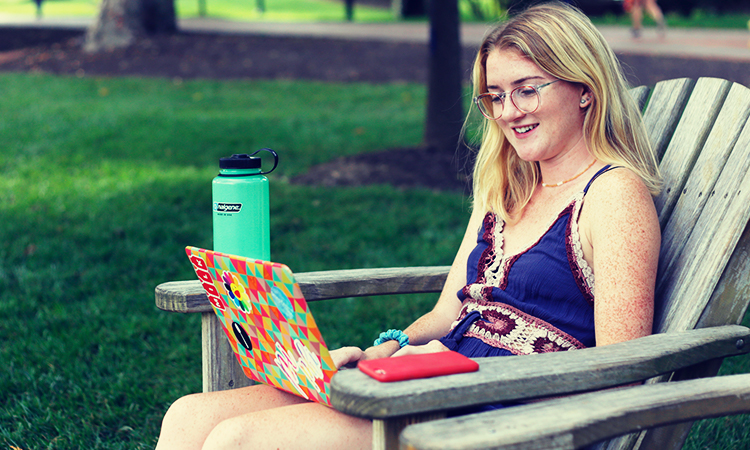 Alex McMillan ’19
Alex McMillan ’19
“No one would expect that I am an immigrant. I look ‘American,’ white with blonde hair and no accent, but my parents and I moved here together from Europe, where I have lived most of my life. I think because of this I have more of an understanding of others. I am not resistant to difference and more receptive to the immigrant challenges in America. Something else someone might not know by looking at me—I am the first in my family to ever go to college.”
Abdul Bhat ’18
“Something you wouldn’t tell by looking at me—I like wine. It’s hard for people to gather that because I am Muslim and the perception is that we don’t drink at all. But wine is one of the most persistent themes in early Islamic literature, such as the area of Shiraz, Iran, which was once synonymous with wine and the culture of wine. Theologically our religion doesn’t allow drinking, but it’s a wonderful paradox with our history. It’s about respecting certain traditions and moving on from others. I drink wine, but I don’t eat pork.”
Karla Talley ’18
“I am a feminist. I am co-leading a trip on sex trafficking during the winter break. It’s not something that affects all people on an everyday basis, but it is a gender-based problem we need to bring awareness to. We will be providing service to help with meals and donation drives such as food and clothing. When I come back I hope I can help bring awareness to campus and start a discussion on something that seems like a taboo topic.”
Rachel Denham ’21
“I love helping the environment. Sustaining it will get us into the next generation; it’s what humanity should be focusing on. We need to be aware of what’s needed and educating others on everyday ways to help, things like turning off water when you aren’t using it and using reusable water bottles. I want to make an impact, and this is where I find my interest to do that. It’s important to be educated because even if it doesn’t affect your daily life it impacts the rest of the world and our future. We can’t take our decisions back.”
Sammi Snyder ’21
“Everyone has always considered me as the jock. But I love musicals. Everyone in my family has always played tennis, and so do I; I am on the team here at Lafayette. But back in high school, I always had the lead roles in theater. I did it all the way through school, 3rd grade to high school and was even in community theater. I would come to theater practice in my pinnie and all sweaty after just getting out of sports practice. But without theater I wouldn’t have enjoyed my childhood so much. It helped me be the well-rounded person I am.”
Grace Nicholas ’21
“I am adopted. Some people go their whole lives looking for love, but I had it since the second I was born. My birth mom had me while she was a teen in high school and left me, but my parents chose me. Everyone thinks they aren’t my real family, but they are everything a family could be to me. Why wouldn’t they be? It’s always interesting seeing people’s reactions when they find out I was adopted, but I’m normal and have a normal family life and tell them: My real parents made a mistake, but they made a decision to give me a better life.”
Kevin Milton ’19
“Something someone wouldn’t know: I’m a closet poet. I have an archive of sorts written just for me so I can reflect on [my poems] in the future. Some people write to be published, but I just have a private collection. It helps keep track of the big events and themes in my life, where I can learn about myself and how I’ve grown, which is so important. It’s a way to look at my life in a biographical context and see the bigger human I have become, taking out the present context and being more mindful of how I accomplished the ups and downs. Typically I like to have a fountain pen and write in a leather-bound journal. When I’m actually writing, I feel like I’m creating something. The sensory detail of writing makes me more mindful of what I’m doing.”
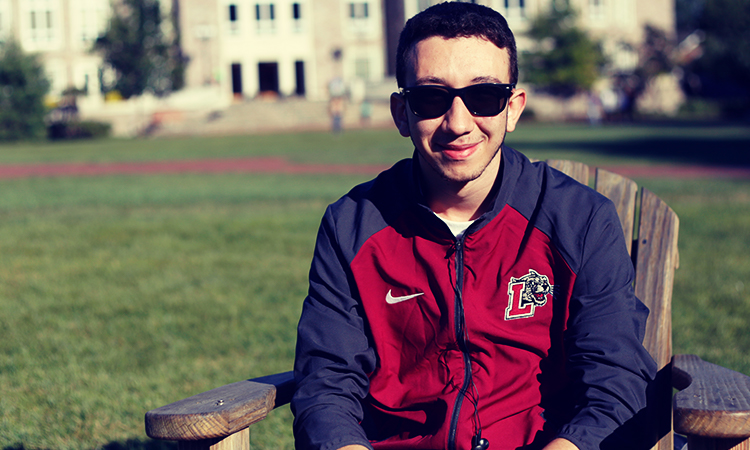 Bora Mutis ’21
Bora Mutis ’21
“I am Turkish and love to fence. It’s a [lesser-known] sport in Turkey, where all good athletes are mostly known for soccer. My dad was a fencer in college, and then he got me into it. I actually remember the first day he introduced me to it. I was nine years old when there was a tournament in my city. We watched it, and he asked, ‘Did you enjoy it and want to try?’ It’s been 10-plus years now that I have been fencing, and I am on the Lafayette team. It’s taught me how to be disciplined. As an athlete, you set priorities and always need to give 100%. It’s an aspect I have carried over into my academics, always working hard to achieve my goals. It was my goal to come to the U.S. and fence. And here I am.”
